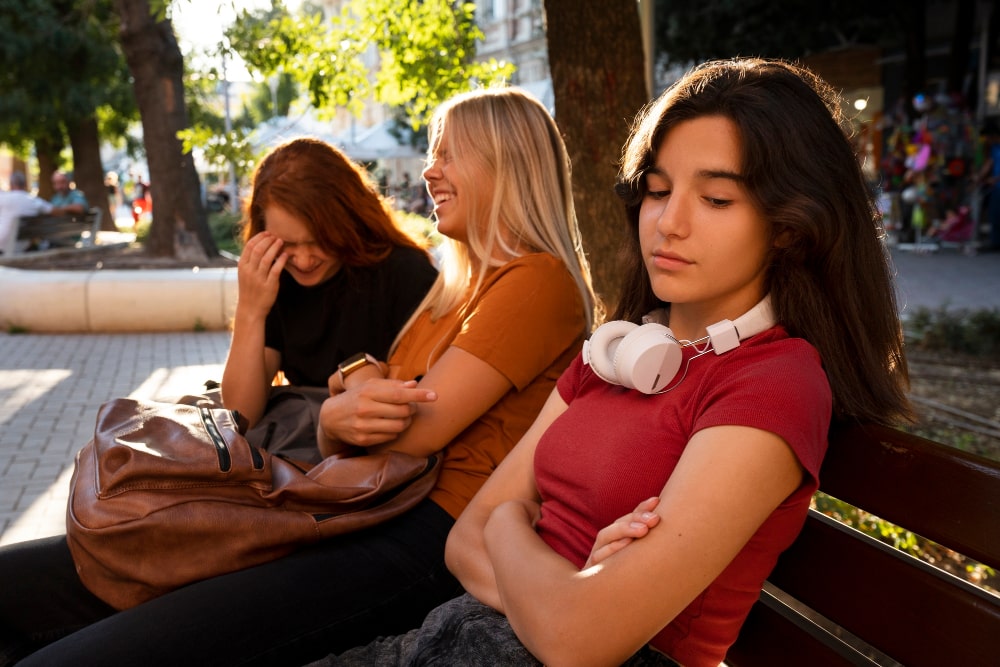| Heading | Subtopics |
|---|---|
| Understanding Jealousy in Friendships | Psychological roots, social comparisons, unmet expectations |
| Is Your Best Friend Jealous of You? | Recognizing internal feelings, second-guessing behavior |
| Subtle Signs of a Jealous Best Friend | Backhanded compliments, shifting energy, ghosting during your wins |
| Overt Signs You Shouldn’t Ignore | Criticism, gossip, emotional manipulation |
| Why Jealousy Arises Between Close Friends | Insecurity, competition, comparison culture |
| The Role of Self-Esteem in Friendships | Confidence vs. envy, healing inner wounds |
| Emotional Triggers That Fuel Jealousy | Milestones, romantic relationships, professional success |
| When Support Turns into Sabotage | Undermining, passive-aggression, intentional disruptions |
| Social Media and Envy in Friendships | Online portrayals, digital comparison traps |
| How to Respond Without Confrontation | Communication hacks, emotional intelligence tips |
| Confronting a Jealous Friend Gently | What to say, how to stay grounded, when to walk away |
| Setting Healthy Boundaries | Protecting your peace, mutual respect practices |
| Knowing When to Distance Yourself | Self-respect, emotional exhaustion, clarity |
| Dealing With Your Own Guilt | Releasing obligation, empowering your growth |
| Helping a Friend Deal With Their Insecurity | Being a mirror, offering empathy, guiding gently |
| Protecting Your Energy from Negative Vibes | Mindfulness, emotional hygiene, spiritual detox |
| Jealousy in Long-Term Friendships | Longevity doesn’t always equal loyalty |
| When Childhood Bonds Become Toxic | Nostalgia vs. present reality |
| The Impact on Your Mental Health | Anxiety, self-doubt, exhaustion |
| Do You Need to End the Friendship? | The honest truth, recognizing red flags |
| Healing After a Toxic Friendship | Rebuilding self-worth, rediscovering joy |
| Surrounding Yourself With Supportive People | Uplifting circles, nurturing spaces |
| Learning to Shine Without Shame | Owning your light, rejecting guilt |
| Transforming Jealousy Into Growth | From tension to transformation |
| Building Healthier Friendships Moving Forward | New standards, deeper connections |
Is Your Best Friend Jealous of You?
It’s a gut feeling at first—something feels off. Your wins are met with half-hearted claps, your new relationship sparks odd silences, or your promotions invite sarcastic remarks. You start to question yourself. Am I imagining it? Is my best friend jealous of me?
Recognizing jealousy in a close friendship is unsettling. After all, this is the person you’ve laughed, cried, and grown up with. Yet, when your light starts to shine a little brighter, their mood shifts.
It doesn’t mean your friend is a bad person. More often, it’s an unspoken emotional struggle—they’re comparing themselves, feeling left behind, or battling their own insecurities. But that doesn’t mean you need to tolerate emotional toxicity. It’s vital to recognize the signs and act with both compassion and clarity.
Understanding Jealousy in Friendships
Jealousy stems from a complex blend of insecurity, unmet needs, and fear. While envy is a normal human emotion, unchecked jealousy in friendships can turn relationships sour. Unlike envy from strangers, jealousy from a best friend cuts deeper—it feels personal.
This emotion often emerges when someone perceives a threat to their self-worth due to another person’s success or happiness. In friendships, this might show up after a new job, a new partner, or a big win. The root? A sense of “I’m not enough” or “I’m being left behind.”
Psychologists say that jealousy can sometimes be a projection—a mirror reflecting what one wishes to have but doesn’t. Recognizing this can help you respond with empathy instead of anger.
Subtle Signs of a Jealous Best Friend
Sometimes, the signs are so understated you barely notice them at first:
-
Backhanded compliments: “Wow, you look amazing… you’re really lucky makeup hides stuff so well.”
-
Disinterest in your success: They change the subject quickly or dismiss your excitement.
-
Ghosting during big moments: Vanishing acts when you need them most or are celebrating a big win.
These behaviors create emotional distance. You begin to question your achievements, wondering if you’re too much or if you’re changing. But in truth, you’re just growing—and not everyone grows with you.
Overt Signs You Shouldn’t Ignore
Not all jealousy is hidden. Sometimes it hits hard:
-
Constant criticism masked as concern
-
Gossiping about you behind your back
-
Turning mutual friends against you subtly
-
Trying to outdo you deliberately
When your friend starts treating you like a competitor instead of a companion, it’s a red flag. Friendships should be safe spaces—not emotional battlegrounds.
Why Jealousy Arises Between Close Friends
Several factors can spark jealousy:
-
Low self-esteem: When someone feels they’re lacking, your success becomes a painful reminder.
-
Life stage changes: Milestones like marriage or career success can intensify feelings of inadequacy.
-
Unspoken competition: Society teaches comparison, even among friends.
Friendships flourish with mutual respect. But when one person feels inferior, they may begin to resent the one they admire most.
The Role of Self-Esteem in Friendships
True friendship thrives on two healthy selves. If your best friend struggles with their identity or worth, your accomplishments might stir feelings of jealousy—not because of you, but because of what they feel they lack.
Support them, but don’t shrink yourself. Emotional health in any friendship is a two-way street.
Conclusion
Real friendship should feel like sunshine—not shadow. If you’ve been wondering, “Is my best friend jealous of me?”, listen to your instincts. Your feelings are valid. Whether the answer is yes or no, it’s an invitation to reflect, reset, and realign your relationships with your values.
Sometimes, love means letting go. Other times, it means holding space for tough conversations. Either way, you deserve friendships that celebrate you, not compete with you. Don’t dim your light just because someone else forgot how to shine.

